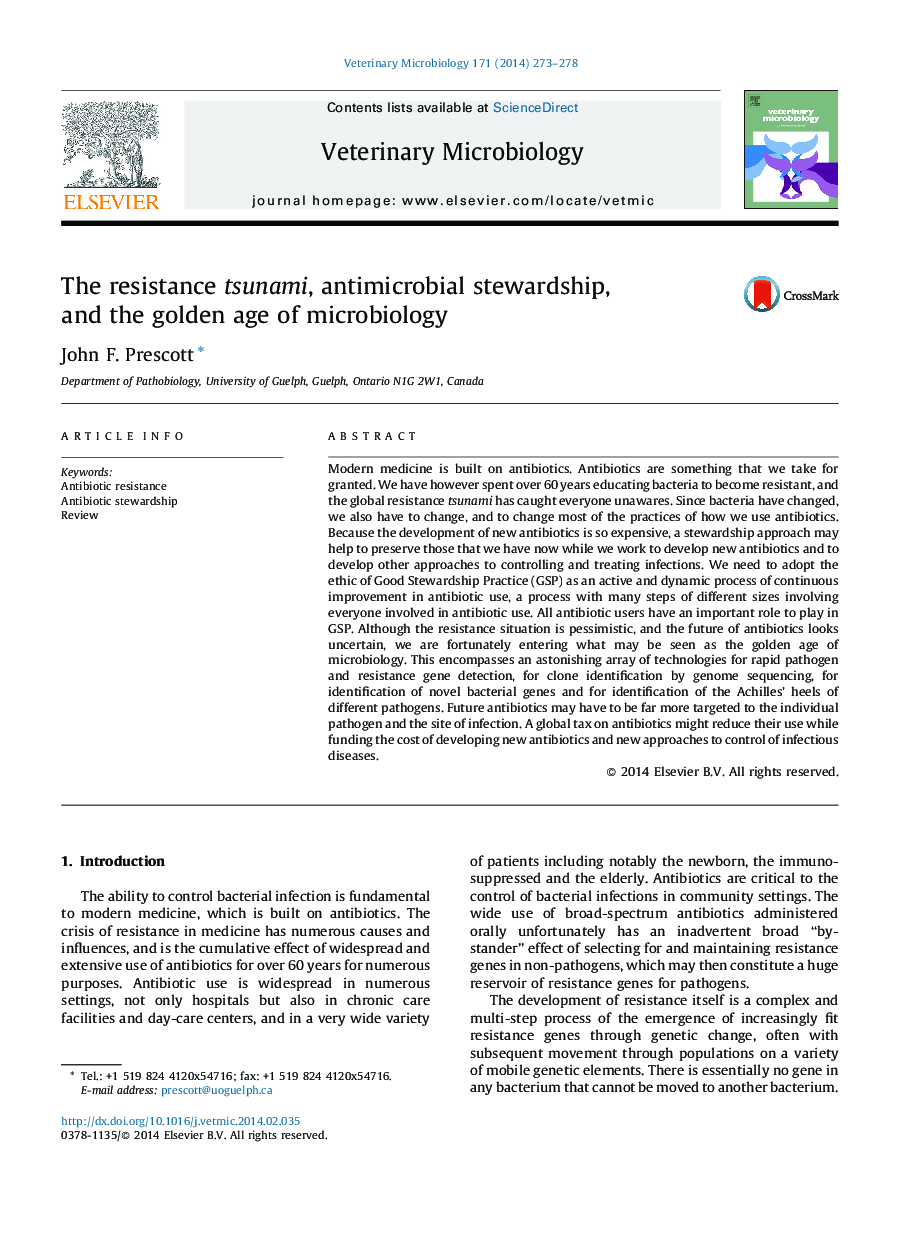| Article ID | Journal | Published Year | Pages | File Type |
|---|---|---|---|---|
| 5800684 | Veterinary Microbiology | 2014 | 6 Pages |
Modern medicine is built on antibiotics. Antibiotics are something that we take for granted. We have however spent over 60 years educating bacteria to become resistant, and the global resistance tsunami has caught everyone unawares. Since bacteria have changed, we also have to change, and to change most of the practices of how we use antibiotics. Because the development of new antibiotics is so expensive, a stewardship approach may help to preserve those that we have now while we work to develop new antibiotics and to develop other approaches to controlling and treating infections. We need to adopt the ethic of Good Stewardship Practice (GSP) as an active and dynamic process of continuous improvement in antibiotic use, a process with many steps of different sizes involving everyone involved in antibiotic use. All antibiotic users have an important role to play in GSP. Although the resistance situation is pessimistic, and the future of antibiotics looks uncertain, we are fortunately entering what may be seen as the golden age of microbiology. This encompasses an astonishing array of technologies for rapid pathogen and resistance gene detection, for clone identification by genome sequencing, for identification of novel bacterial genes and for identification of the Achilles' heels of different pathogens. Future antibiotics may have to be far more targeted to the individual pathogen and the site of infection. A global tax on antibiotics might reduce their use while funding the cost of developing new antibiotics and new approaches to control of infectious diseases.
